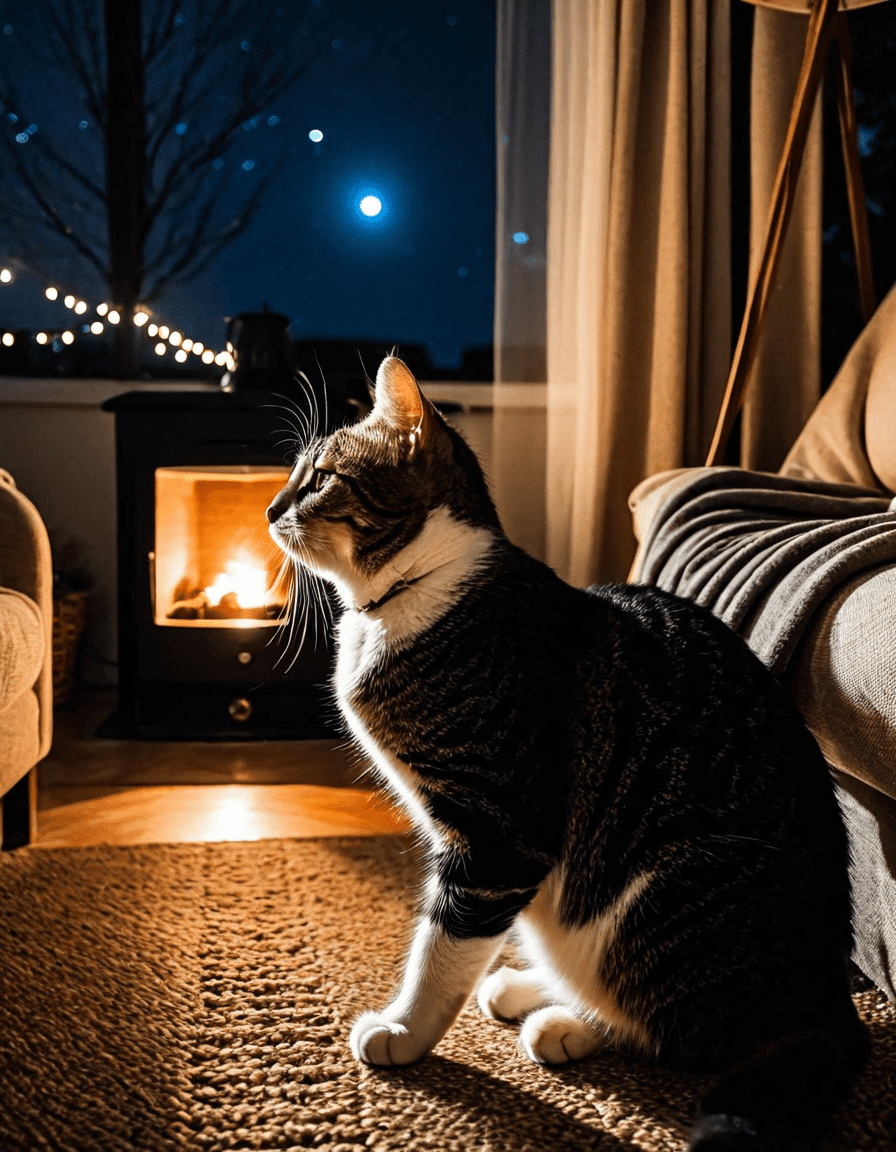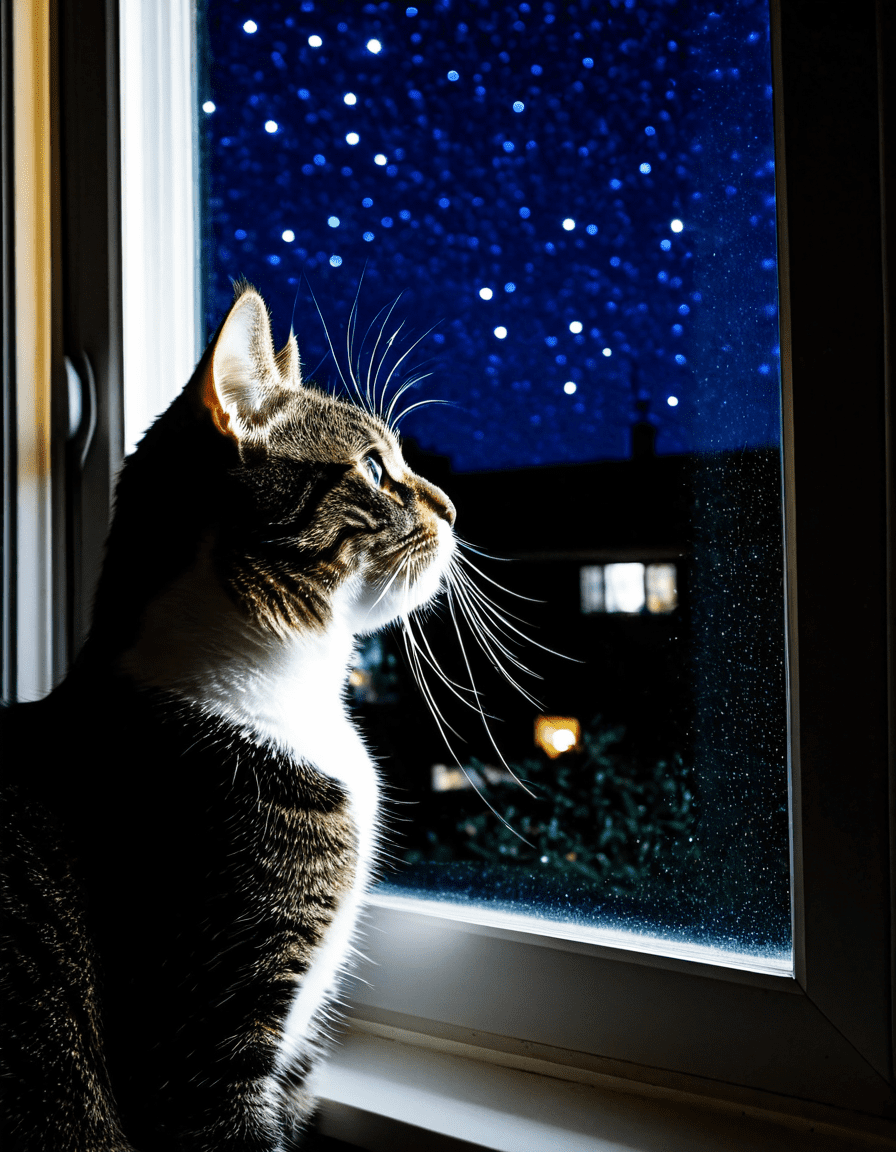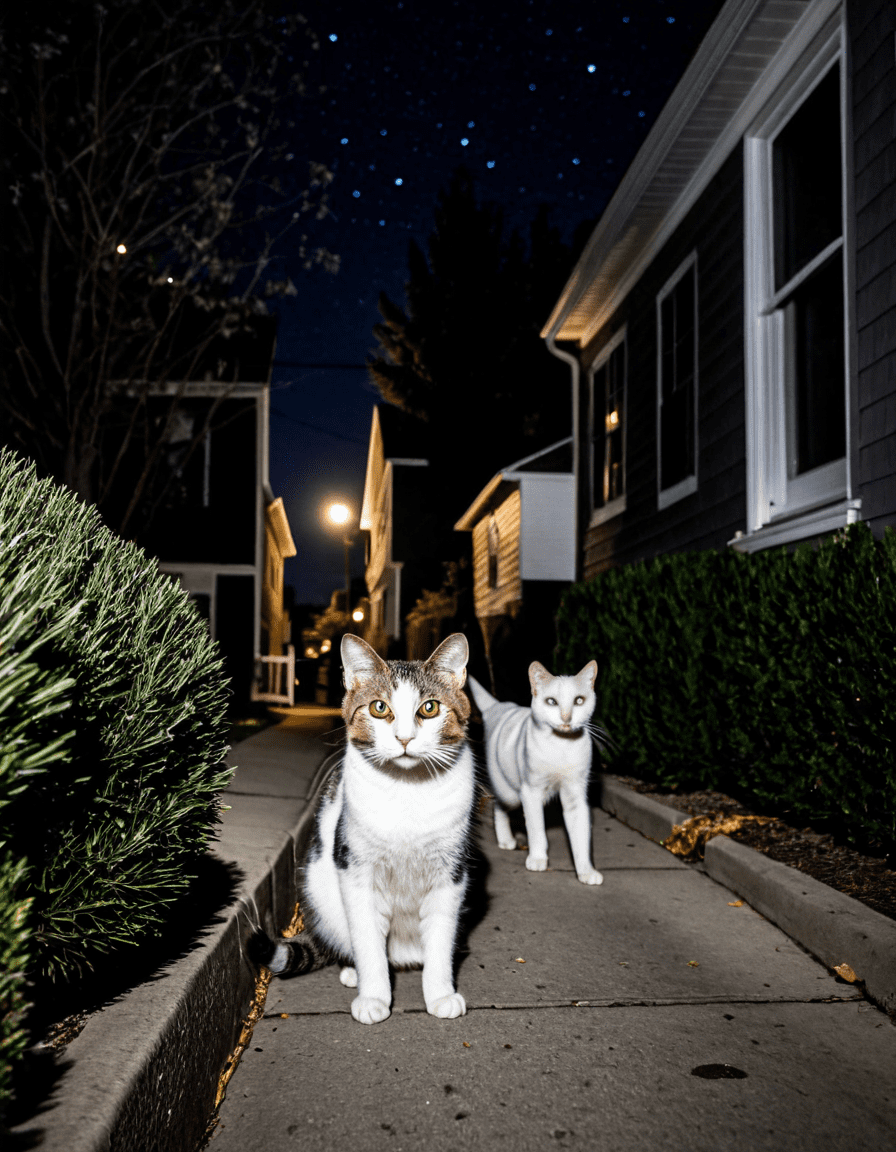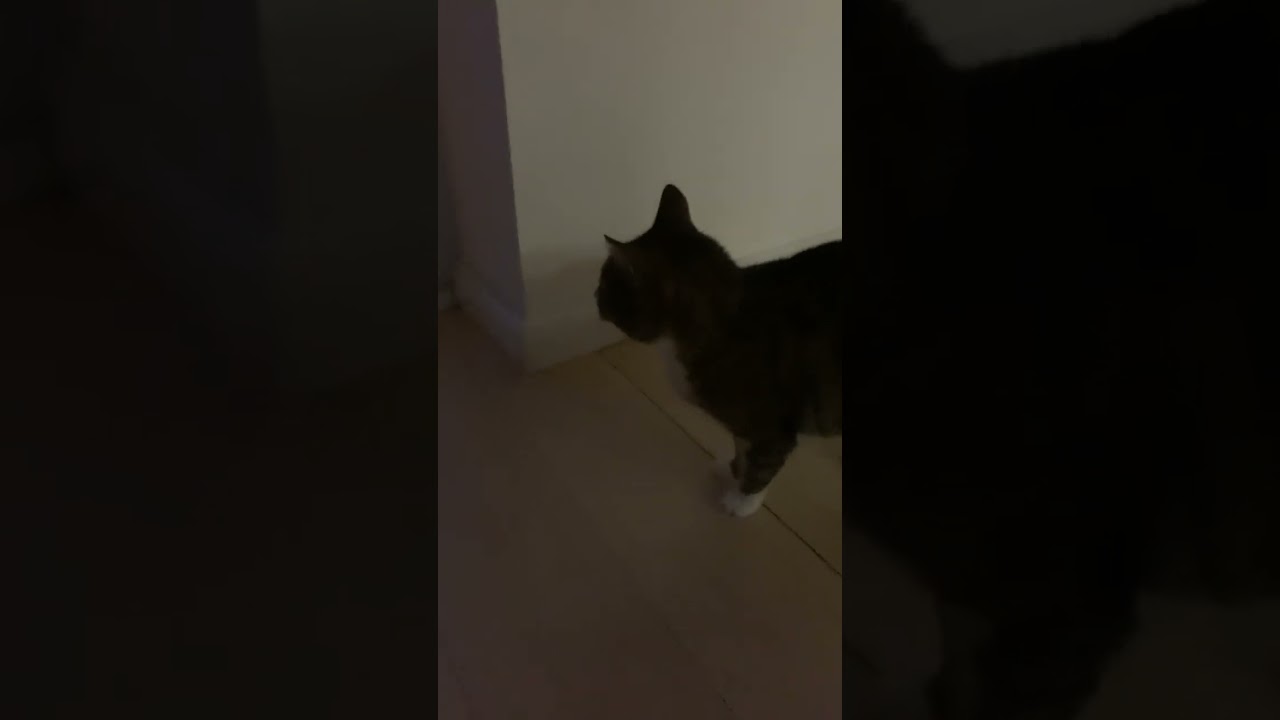Are your peaceful nights shattered by the startling sound of cat yowling at night? You’re not alone! Many cat owners experience this nocturnal chorus, often leaving them puzzled and frustrated. While yowling might seem just like noise, it’s actually a form of communication for your feline friend. This article delves into what triggers cat yowling at night, how it affects your sleep, and practical solutions to create restful nights for both you and your cat.
1. What Triggers Cat Yowling at Night?
Behavioral Factors
First off, let’s explore the behavioral factors behind this nighttime racket. Cats are naturally instinctive creatures with a strong connection to their wild ancestors. Unspayed or unneutered cats, for example, often yowl due to mating calls. This instinctual behavior can kick in even if your cat hasn’t experienced heat recently, making those midnight serenades all the more likely.
In addition, some cats yell out when they are bored or seeking attention. If your feline feels neglected, they might resort to yowling as a way to get you to engage with them. Taking the time to enrich your cat’s environment can help reduce these types of vocalizations.
Health Issues
Beyond instinctual behaviors, health concerns can also lead to cat yowling at night. Conditions like hyperthyroidism or cognitive dysfunction syndrome can cause your cat to vocalize excessively. According to a study from the American Veterinary Medical Association, weight loss, hyperactivity, and increased vocalization are common in cats affected by hyperthyroidism. If your cat’s yowling is paired with other signs like weight loss or changes in appetite, it’s wise to consult with a veterinarian.
Cognitive dysfunction syndrome, similar to dementia in humans, can also lead to nighttime yowling. A cat experiencing confusion may vocalize more, especially at odd hours. Signs may include disorientation, disrupted sleep patterns, and changes in behavior. Monitoring these symptoms is essential for your cat’s health and comfort.
Environmental Stimuli
Sometimes, it’s the outside world that prompts your cat to yowl. New noises, sudden changes in the household—like introducing new pets or unfamiliar scents—can all cause anxiety in cats. A dog barking in sleep or loud noises from outside may startle your cat, prompting them to vocalize. If you’ve recently moved or added new family members (two-legged or four-legged), your cat might be adjusting to these changes by making their feelings known.

2. The Impact on Your Sleep: Addressing Cat Yowling at Night
Noise Levels and Sleep Disruption
We can’t ignore how cat yowling at night disrupts sleep, impacting your health and mood. Loss of sleep can lead to increased stress, irritability, and concentration problems. Over time, chronic sleep deprivation can even result in more severe health issues like anxiety or heart problems. Let’s face it, no one thrives on lack of sleep, especially when your furry friend is wide awake playing the diva!
Strategies for Intervention
So what can you do to tackle this issue? Here are some practical strategies to help manage or reduce night yowling:
Implementing these strategies may lead to more peaceful nights, both for you and your furry companion!
3. Top 5 Solutions: Quieting Your Cat’s Nighttime Yowling

4. Interconnected Issues: Cat Behavior and Dog Sleep Noises
Understanding Dog Peeing in Sleep
If you share your home with a dog and a cat, you might notice dogs’ nighttime behaviors intertwining with your cat’s yowling. For instance, why does your dog pee in sleep? Similar nighttime disruptions can occur! Anxiety, age-related incontinence, or even excessive excitement can trigger this behavior in dogs.
Nighttime Dog Vocalizations
And that’s not all. Dogs also vocalize in their sleep! A dog barking in sleep, or even whimpering, could occur due to dreams or lingering anxiety. Breeds like beagles are known for their vocal tendencies, while others may twitch as they dream. These nighttime sounds can sometimes escalate, throwing your other pets into confusion.
Analyzing Dog Sleep Behaviors: Are They Symptomatic?
While you’d hope for a serene night, your dog might respond to the noise caused by cat yowling. If your dog’s stomach gurgles like crazy and they won’t eat, it could signify stress or miscommunication between pets. Observing their interactions is crucial. If your cat’s bizarre sounds incite your dog’s barking or even twitching, it’s time for a comprehensive approach to manage both pets’ nighttime peace.
5. Building a Peaceful Night for All Your Pets
Creating a Calming Nighttime Environment
Lasting solutions involve crafting a peaceful nighttime environment for everyone at home. Designate a cozy space with comfortable bedding and soft lighting. Calming scents like lavender can also help soothe both cats and dogs.
Understanding Pet Dynamics
Additionally, being attentive to the interactions between your pets is key. If your dog’s barking disrupts your cat’s tranquility, consider separate spaces during periods of rest. The aim is for every pet to feel secure and relaxed, which reduces nighttime disruptions.
Transforming Nocturnal Yowling into Tranquil Nights
Addressing cat yowling at night isn’t just about managing a disruptive noise; it’s a chance to understand your pet’s needs holistically. By identifying the underlying causes—be it behavioral or health-related—and implementing strategies that promote a peaceful atmosphere, pet owners can enhance their sleep quality and the well-being of furry companions.
In the end, this compassionate approach encourages harmony within the household, ensuring restful nights for everyone involved. Whether you’re tempted to hit the snooze button or chase after the sound of feline yowling, remember that everyone’s peace is interconnected. Let’s turn those nighttime yowls into soothing silence!
Cat Yowling at Night: Understanding Your Feline’s Midnight Melodies
What’s Behind the Yowling?
If you’re a cat owner, you’ve probably experienced the late-night serenades of your beloved feline. Cat yowling at night can drive you a bit bonkers, but it might be your cat’s way of communicating. Interestingly, did you know that some cats yowl to express discomfort or even alert you to potential dangers? Just like how cows in a herd communicate to keep track of each other, your cat might be doing the same to get your attention when the moon’s high.
Cats are naturally more active at dusk and dawn, so their nighttime antics can sometimes feel like a scene from a movie with Bette Midler, where the drama unfolds in unexpected moments. If you find yourself tossing and turning, longing for a quiet evening, consider checking if your cat’s needs—like playtime or food—are being met. Keeping their environment enriched can help reduce those late-night concerts.
Finding the Root Cause
It’s essential to consider health-related issues as well. If the yowling increases, it might warrant a vet visit to rule out painful conditions or even a hormonal imbalance. Similar to noticing a swelling on a dog’s face, any sudden changes in behavior can indicate a need for professional insight. Also, you wouldn’t want to overlook the emotional side; changes in their environment or routine can lead to anxiety, prompting those midnight calls!
Another fun fact—some cats are more vocal than others! Breeds like the Siamese are known for their expressive nature, making them natural nocturnal troubadours. It’s like seeing a wedding party in black bridesmaid Dresses—elegantly vibrant and eye-catching! If you embrace their unique quirks and understand the context, you may just find those late-night yowls are a form of companionship rather than a nuisance.
How to Manage the Yowling
If the cat yowling at night becomes a nightly issue, creating a calming bedtime routine can work wonders. Dim the lights, offer some play, or perhaps a tasty treat, similar to feeding human snacks but tailored to your cat’s taste. Speaking of food, did you know there are specific fruits suitable for red-eared slider turtles? Being mindful of nutrition can also enhance their overall happiness and wellbeing.
Engaging your cat’s senses before bed can help them unwind. Just like planning for the Super Bowl 2025, a little strategy goes a long way! Monitor their activities during the day, and ensure they’re adequately socialized. A well-exercised cat is often a quieter cat, so give them plenty of opportunities to stretch their legs and engage—trust me, it’s worth it for those peaceful nights!
In the end, understanding cat yowling at night can transform those seemingly annoying sounds into a fascinating part of your feline’s personality. So embrace it all—it’s just another delightful aspect of the charming puzzle that is your pet!






